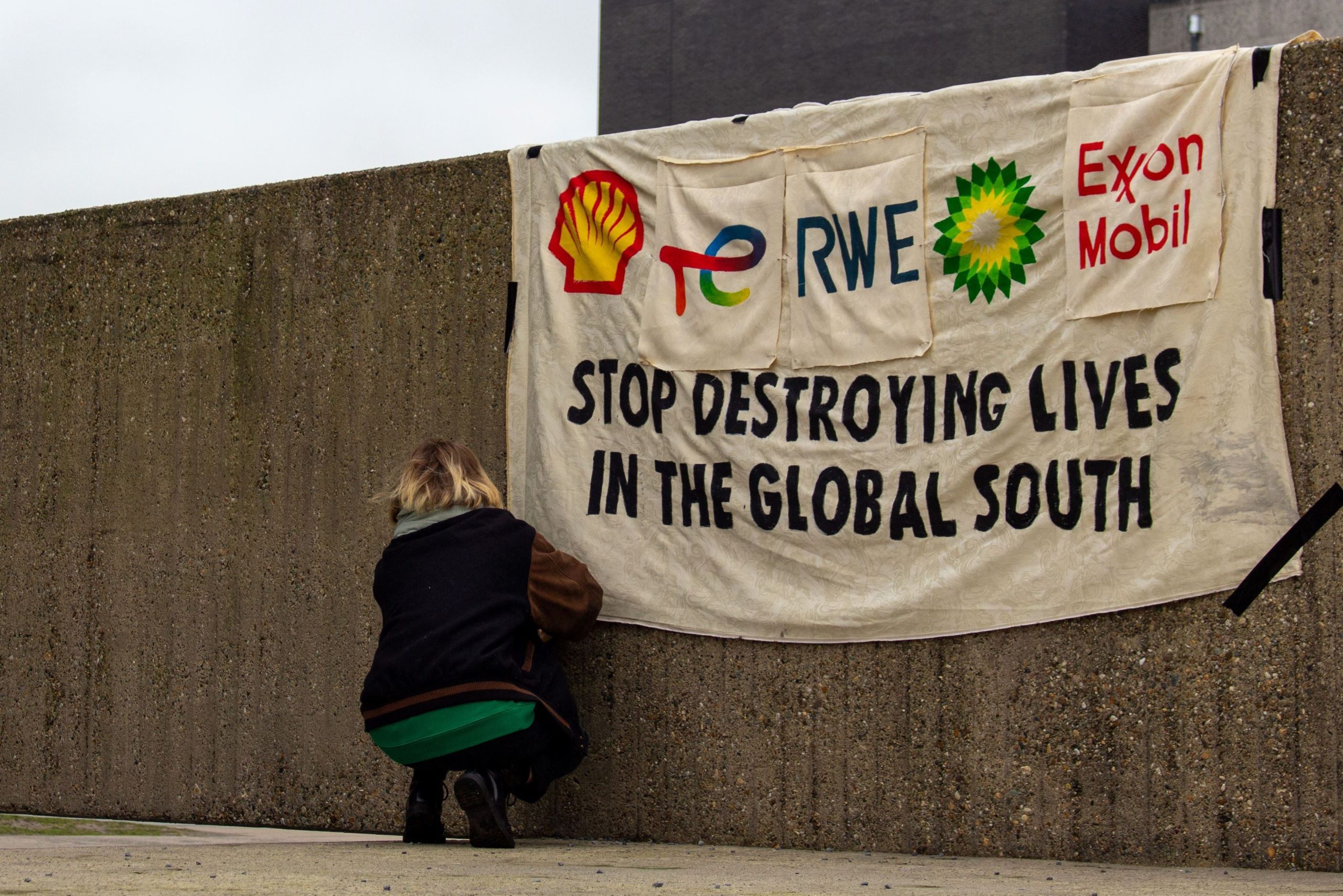Do you want to discuss TU Delft’s ties to the fossil fuel industry? You can do so from November onwards. The outcomes should lead to recommendations to the Executive Board.
An End Fossil activist hangs a banner at a demonstration at TU Delft. (Photo: Nikita Ham)
From November, everyone at TU Delft can share their opinions about the ties to the fossil fuel industry in a questionnaire, dialogue sessions, and in a ‘Moral Deliberation Chamber’. This was announced by the Executive Board in an email to all employees and students on Thursday. The points raised will be used to ‘reassess’ current partnerships, writes the Executive Board.
Breaking ties with the fossil fuel industry is an important subject for climate activists at universities across the Netherlands. Earlier this year the Free University of Amsterdam and the University of Amsterdam pledged not to enter into new fossil fuel partnerships. At a debate at Leiden University, the audience unanimously voted to break all ties.
At TU Delft, the Executive Board has always stated that breaking ties with the fossil fuel industry is not an option. At a meeting with the End Fossil climate activist group in April, Vice-Rector Magnificus Rob Mudde said that he did not see any new arguments for breaking the ties. “I simply do not see a Plan B.” In May End Fossil occupied the Pulse academic building to draw attention to the issue.
Questionnaire
Despite this, TU Delft will now enable a series of deliberations, starting with a questionnaire compiled by the Populytics research bureau at TU Delft. The deliberations should generate ‘a clear picture of the wishes, shared values […] and concerns’, states the Executive Board. The findings will serve as input for the second part of the programme which will involve dialogue sessions to be held in November.
As the so-called ‘Moral Deliberation Chamber’ needs commitment, TU Delft is looking for 12 students and staff members to take part in a few half-day sessions to be held between November and February. It will be a continuation of the previous ‘moral deliberation’ test at the Faculty of Electrical Engineering, Mathematics and Computer Science.
The Moral Deliberation Chamber will seek the best solutions to a moral dilemma, explains Integrity Officer Ibo van de Poel who is closely involved. “Each meeting will revolve around one issue. The idea is that the participants in each case arrive at a joint answer to the question of whether we take on a partnership or not.” The external bureau that designed this specialised methodology will facilitate the sessions.
Advisory role
Van de Poel stresses that the intention is that the Moral Deliberation Chamber comprises a mix of people. “We are looking for a range of perspectives and diversity.” The sessions are not debates. “The participants must be prepared to re-examine their opinions and adjust these in discussion with the others.” Preceded by a basic training, a recommendation will emerge at the end of the six sessions.
The advice that the Integrity Office and the Climate Action Programme will issue to the Executive Board will be based on the outcomes of the questionnaire and the dialogue sessions. Van de Poel hopes that the advice will be taken seriously. “Our intention is that the outcomes of these three deliberation efforts will have an effect.”



Comments are closed.